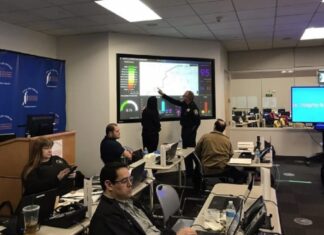Introduction: A New Era in Logistics
The logistics sector, once viewed as a straightforward component of global commerce, is undergoing a profound transformation, driven by the demands for faster, more transparent, and efficient services. This evolution is particularly evident in the area of transportation software development, where cutting-edge solutions are being developed to not only meet but exceed the evolving expectations of customers. The advent of digital technology in this space is not just an upgrade; it represents a revolution that’s reshaping the landscape of global logistics. In a market where consumers demand excellence at every turn, logistics companies are leveraging innovative technologies to redefine what it means to deliver outstanding service. This shift towards a digitally enabled logistics ecosystem highlights the critical role of technology in transforming operations to enhance customer satisfaction and stay ahead in a competitive landscape.
The Shift to Technology
Enhancing customer experience in logistics is all about knowing and using the right power of technology. In this fast-moving world, customers are not satisfied with just getting their packages delivered. They want an experience that incorporates speed, transparency, and personalization. It is this shift toward a more demanding consumer base that has propelled logistics companies to embrace technological solutions. Everything from data analytics and AI to blockchain and IoT makes it possible for logistics to be far more than a mere ‘backhouse’ operation. It’s a strong customer-centric powerhouse that’s capable of delivering experiences thought of as impossible some time back.
Data Analytics for Personalized Services
At the heart of customized logistics services sits data analytics. By leveraging the huge volumes of data coursing through logistics networks, today’s companies can predict customer preferences, optimize delivery routes, and even forecast potential delays. It is this level of personalization that makes sure the customers enjoy their packages on time, and are engaged in such a way that it would feel unique to their needs. For instance, predictive analytics can teach about the time of delivery with respect to the receiver’s availability to avoid missed deliveries and minimize customers’ dissatisfaction.
AI and Machine Learning for Efficiency
Artificial Intelligence along with Machine Learning is setting new benchmarks for logistics efficiencies. Both technologies are at the forefront in forecasting demand, sustaining inventories, and ensuring that the correct product at the right time reaches the correct destination. AI can also predict spikes in demand by analyzing historical data and current trends, thus enabling a company to prepare well in advance. Machine learning algorithms are also incrementally improving delivery routes considering traffic patterns and weather conditions to make sure that the fastest delivery routes are used. This improves not just the operational efficiency but greatly enhances customer experience, too, by way of ensuring timely delivery.
Blockchain for Transparency and Trust
It is bringing a level of transparency and confidence to the logistics industry. All parties see in real time what has happened to shipments in the supply chain thanks to the secure, immutable ledger that blockchain creates for recording transactions. This would mean customers trace the journey of their products from warehouses to their location, knowing full well that the information received is valid and tamper-proof. Such levels of transparency will not only give customers a reason to believe in companies but also make consumers far more aware, hence very engaged in the delivery process.
Specific Technological Solutions and Their Impact
The integration of certain technologies into logistics has indeed proved revolutionary for improvement in customer experience. Let’s take a glimpse at some of these innovations and their direct advantages to the consumers.
IoT Devices for Real-Time Tracking
IoT introduced new changes in tracking shipments in real time. With the help of IoT devices, each package and container turns into a source of information about its position, condition, and exact time of arrival. Thus, this technology can enable logistics companies to provide more certainty to their customers about the location of their items at any given moment and when they should expect them to arrive. This also allows for prompt action if unexpected delays or issues arise, further enhancing customer satisfaction.
Mobile Applications for Customer Engagement
Logistics companies are remodeling the way communication with customers is made by using mobile applications. This not only consists of easy booking and making a payment through the applications but also sending instantaneous updates and feedback. This enables customers to receive notifications at every stage of the shipment journey, make delivery preferences, and even rate the delivery experience. Such levels of engagement not only make the process of logistics more transparent but also give customers a sense of control over their shipments, thus making the overall experience more satisfying.
Automation and Robotics for Faster Processing
Automation and robotics are in place at warehouses and sorting centers, reducing processing times by huge margins. Automated sorting systems, robotic pickers, and drones will also be employed to speed the handling of goods in a race to get shipments out faster and more accurately. This technology reduces human error and the incident of operational delays, thus directly equating to faster delivery times with the customer. With every minute being too valuable to be wasted, speeding up shipments with automation means a lot for end customers when talking about logistics.
Case Studies and Real-World Applications
Success Stories
The following case illustrates how technology can enhance the customer experience in the logistics sector. Based on the experience of one of the most important international couriers, IoT and AI were used to enhance performance in the delivery network. By using IoT devices to track packages in real time and AI to optimize routing, the company managed to shave 20% off its delivery times and greatly enhance the overall level of package tracking accuracy, with significant improvement in customer satisfaction ratings.
Another such example is logistics-a startup using blockchain technology to enable transparent and secure documentation of international trade. Faster customs clearances is but one result of the approach; more importantly, customers have unprecedented visibility into the cross-border movement of goods, thereby further building trust and reliability.
Customer Feedback
Indeed, transparency, efficiency, and personalization they operate with have been strong points coming out in customer feedback from those who have benefited from these technological catch-ups. Most of them like to track shipments in real time and, therefore, the convenience of mobile apps-a right at their fingertips-to manage their delivery experience. This overview underlines how technology plays an important role in meeting and outstripping today’s customer expectations of logistics.
Conclusion: Future Outlook
Continuous is the future of logistics: integrating technologies in ways that further improve customer experience. Drone deliveries, autonomous vehicles-these are the kinds of innovations that will really alter how much faster deliveries can be made and with how much more efficiency. As these technologies become more mainstream, they will continue to afford logistics companies new opportunities to wow their customers and make same-day or even hour deliveries, once a vision from some futuristic novel, a reality.
The result has been a new paradigm in customer service where efficiency, transparency, and personalization are not ideals but tangible reality. And if logistic companies embraced such innovations even further, customers would have an even better experience that keeps raising the standard for the entire world.










![Etruesports IOS App: Purpose, Installation Steps and Issues [Solved] Etruesports IOS App Purpose, Installation Steps and Issues [Solved]](https://www.articles4business.com/wp-content/uploads/2025/01/Etruesports-IOS-App-Purpose-Installation-Steps-and-Issues-Solved-100x70.jpg)